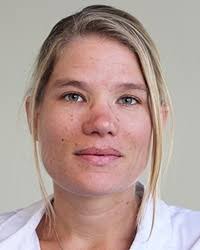The course aims to study 20th-century African history through the lens of power and historiography. History writing is a process of power, producing dominant narratives that structure the way in which we understand the world. The Congo crisis of the 1960s is such a historic event that we have learned to understand through a lens that privileges external perspectives that emphasise international intervention, Cold War rivalries, failed decolonization, and the Congo as perpetual heart of darkness (Dunn 2002). The seminar focuses particularly on how power is being received, consumed, negotiated and reproduced by people subject to power structures in Africa, thus emphasising the existence of multiple truths and multiple histories. We use the case of the historiography of the Congo Crisis of the 1960s to open up space for alternative historiographies that occur in the vernacular as a means to understand what this dramatic historic event means for people in the Congo and how they in the present reflect on the power politics of the past.
The course therefore also engages critically with concerns about the decolonization of knowledge, knowledge production in the digital age, and as well as authorship and audience of historiography. Putting theory to practice, the students work with the painting L’Indépendent Sanguine, Congo 1960-1965 by the Congolese painter Sapin Makengele (who has also interacted with the students during the course) as a point of entrance into the study of historiographies of the Congo crisis. The students are challenged to develop their own case study in the form of a visual and/or online publication that is published in this website.
Lecturers
Meike de Goede (Historian)
 The research of Meike focuses on the late colonial and early post-colonial period in French Equatorial Africa. She is particularly interested in the history of the rapport between the late colonial and early post-colonial state and the Matsouanist movement, a politico-religious movement founded on the ideas of André Matsoua (1899-1943), a prominent Congolese resistance leader. This history is characterized by (passive) resistance of a marginalized social group, violence, repression, in the context of a highly complex and ill-understood process leading to the independence of Congo-Brazzaville. The history of this movement, and the traumatic events its members have experienced has subsequently been systematically silenced. Her research combines archival research with oral history and memory of witnesses and their descendants.
The research of Meike focuses on the late colonial and early post-colonial period in French Equatorial Africa. She is particularly interested in the history of the rapport between the late colonial and early post-colonial state and the Matsouanist movement, a politico-religious movement founded on the ideas of André Matsoua (1899-1943), a prominent Congolese resistance leader. This history is characterized by (passive) resistance of a marginalized social group, violence, repression, in the context of a highly complex and ill-understood process leading to the independence of Congo-Brazzaville. The history of this movement, and the traumatic events its members have experienced has subsequently been systematically silenced. Her research combines archival research with oral history and memory of witnesses and their descendants.
Mirjam de Bruijn (Research anthropologist)
 Mirjam de Bruijn is an anthropologist whose work has a clearly interdisciplinary character with a preference for contemporary history and cultural studies. She focuses on the interrelationship between agency, marginality, mobility, communication and technology. Mirjam is an Africanist with a focus on West and Central Africa. She did and does, extensive (qualitative) fieldwork in Cameroon, Chad and Mali. Her specific fields of interest are nomadism, youth and children, social (in)security, poverty, marginality/ social and economic exclusion, violence, slavery, human rights, and Information and Communication Technologies (ICTs).
Mirjam de Bruijn is an anthropologist whose work has a clearly interdisciplinary character with a preference for contemporary history and cultural studies. She focuses on the interrelationship between agency, marginality, mobility, communication and technology. Mirjam is an Africanist with a focus on West and Central Africa. She did and does, extensive (qualitative) fieldwork in Cameroon, Chad and Mali. Her specific fields of interest are nomadism, youth and children, social (in)security, poverty, marginality/ social and economic exclusion, violence, slavery, human rights, and Information and Communication Technologies (ICTs).

